Recent Blog Posts
Motions to Revoke Probation Can Lead to Complex Situations in Texas
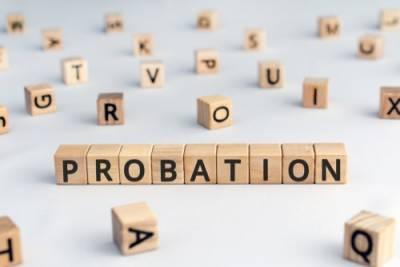 When you are on probation for a crime, especially with time already served, you will want to do anything to avoid any additional penalties or jail time. Despite this fact, no matter your most valiant efforts, you might end up finding yourself on the other end of a motion to revoke probation (MTR) issued by your probation officer. This is part of the reason why you must always be on such good behavior if on probation. Yet, if you deviate even to the slightest degree and do something illegal, you could be faced with an MTR.
When you are on probation for a crime, especially with time already served, you will want to do anything to avoid any additional penalties or jail time. Despite this fact, no matter your most valiant efforts, you might end up finding yourself on the other end of a motion to revoke probation (MTR) issued by your probation officer. This is part of the reason why you must always be on such good behavior if on probation. Yet, if you deviate even to the slightest degree and do something illegal, you could be faced with an MTR.
A Brief Overview of Motions to Revoke Probations in Texas
A motion to revoke probation will generally be filed when you commit any crime under the supervision of a probation officer. In general, the probation supervisor makes the decision to file this motion based on behavior the officers observe themselves or note from others, be it police or other witnesses to the crime(s). It is easy to forget that even though you are on probation and in the real world, you are still not entirely a free individual as your behavior seems like it is held to a higher standard than most average civilians, especially since your behaviors and actions are being documented by a probation supervisor often.
What You Need to Know About Intoxication Manslaughter in Texas
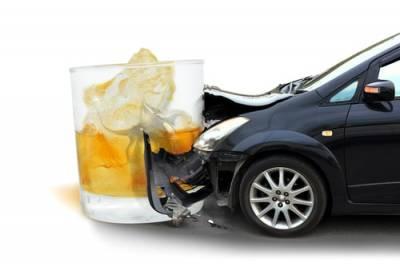 While DWI (driving while intoxicated) itself is a very serious offense, the most serious offense related to such a crime is intoxication manslaughter. This is no coincidence—the whole purpose of law enforcement serving and protecting other civilian drivers from those drivers who are intoxicated is to maintain their safety from serious injury or death. When an intoxicated driver kills someone by accident or mistake, the offense is referred to as intoxication manslaughter, and its penalties are very serious indeed.
While DWI (driving while intoxicated) itself is a very serious offense, the most serious offense related to such a crime is intoxication manslaughter. This is no coincidence—the whole purpose of law enforcement serving and protecting other civilian drivers from those drivers who are intoxicated is to maintain their safety from serious injury or death. When an intoxicated driver kills someone by accident or mistake, the offense is referred to as intoxication manslaughter, and its penalties are very serious indeed.
What Constitutes Intoxication Manslaughter in Texas?
In the state of Texas, the law defines “intoxication manslaughter” as follows:
“An individual is committing the offense of intoxication manslaughter if that person operates a motor vehicle in a public space, an aircraft, a watercraft, an amusement ride, or assembles an amusement ride while being intoxicated with a blood alcohol content (BAC) greater than or equal to .08% in which the aforementioned intoxication causes the death of another by mistake or accident.”
What Is a “Sobering Center” and How Can It Prevent DWI Charges in Texas?
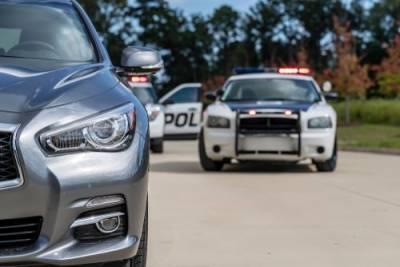 It is late. You are drunk and far away from home. You know driving at this stage of drunkenness would be illegal, but you also cannot afford the money necessary to get all the way back home from where you are. What are your options? Call a friend or family member? “Sleep it off” on a public bench and risk being arrested? Risk driving home anyway and then eventually getting charged with DWI (driving while intoxicated) or worse depending on what happens while you are driving drunk? There is another option all across Texas, including the “Sobering Unit” at Roberto L. Jimenez M.D. Restoration Center (“Drunk Tank” for “down-and-outs”) in San Antonio. These sobering centers offer a compelling alternative for both law enforcement and drunk civilians, including those contemplating driving home drunk. Here is why.
It is late. You are drunk and far away from home. You know driving at this stage of drunkenness would be illegal, but you also cannot afford the money necessary to get all the way back home from where you are. What are your options? Call a friend or family member? “Sleep it off” on a public bench and risk being arrested? Risk driving home anyway and then eventually getting charged with DWI (driving while intoxicated) or worse depending on what happens while you are driving drunk? There is another option all across Texas, including the “Sobering Unit” at Roberto L. Jimenez M.D. Restoration Center (“Drunk Tank” for “down-and-outs”) in San Antonio. These sobering centers offer a compelling alternative for both law enforcement and drunk civilians, including those contemplating driving home drunk. Here is why.
“Sobering Center” Defined
Sobering centers are seen as intermediaries between actual arrests with legal consequences for drunkenness that disrupts the peace and expensive hospital visits for excessive drinking. In short, these sobering centers are short-term recovery facilities where drunk or otherwise inebriated civilians can “sleep it off” and get a chance to regain their sobriety less the headaches of the morning after with the option to continue with recovery programs and other treatment options.
What Is the Science Behind Breath Tests and Are They Ever Wrong?
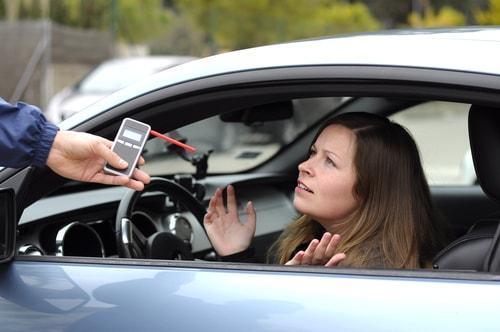 As the winter holidays approach, including potential New Year’s Eve festivities, even during the age of the COVID-19 pandemic, there is an increased likelihood of cases involving DWI (driving while intoxicated), DUI (driving under the influence), and even BWI (boating while intoxicated). As such, there is an equal increase in vigilance from law enforcement with regards to policing drunk driving. With that in mind, here is more information about one of the first things that will happen if you do get pulled over for a DWI this holiday: the breath test.
As the winter holidays approach, including potential New Year’s Eve festivities, even during the age of the COVID-19 pandemic, there is an increased likelihood of cases involving DWI (driving while intoxicated), DUI (driving under the influence), and even BWI (boating while intoxicated). As such, there is an equal increase in vigilance from law enforcement with regards to policing drunk driving. With that in mind, here is more information about one of the first things that will happen if you do get pulled over for a DWI this holiday: the breath test.
How Breath Can Be Tested for Alcohol
Alcohol moves through the alveoli of the lungs when it is consumed and evaporates into your breath. This “alveolar air,” when exhaled, provides substantial evidence to breathalyzer and other related breath tests of blood alcohol concentration (BAC). This allows officers to instantly know whether someone is drunk enough to be arrested instead of having to wait for the results of a blood or urine test.
What Constitutes Intoxication Assault Charges in Texas?
 DWI (driving while intoxicated), DUI (driving under the influence), and even BWI (boating while intoxicated) are all common charges throughout the San Antonio area. However, one charge is not discussed nearly as often and yet has very serious consequences, in and outside of the courtroom: intoxication assault. Here is how Texas law defines intoxication assault, including its associated terminology and penalties.
DWI (driving while intoxicated), DUI (driving under the influence), and even BWI (boating while intoxicated) are all common charges throughout the San Antonio area. However, one charge is not discussed nearly as often and yet has very serious consequences, in and outside of the courtroom: intoxication assault. Here is how Texas law defines intoxication assault, including its associated terminology and penalties.
Intoxication Assault Defined
Per Section 49.07 of the Texas Penal Code, a person commits intoxication assault if that person causes serious bodily injury to another:
- While operating an aircraft, watercraft, or amusement ride while intoxicated;
- While operating a vehicle in a public place while intoxicated; or
- As a result of assembling an amusement ride while intoxicated.
There are two key phrases in this definition of intoxication assault: "while intoxicated" and "serious bodily injury." In terms of operating motor vehicles or other modes of transportation while intoxicated, in Texas, an adult of the age of 21 or older cannot operate such a vehicle with a Blood Alcohol Concentration (BAC) of .08% or higher. When that happens, a charge of driving while intoxicated (DWI) is filed against the intoxicated driver; however, compound that with “serious bodily injury” of someone else, and there is intoxication assault.
Enhancements That Complicate and Compound DWI Charges in Texas
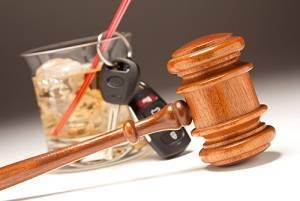 While being arrested and charged with DWI In Texas is bad enough, carrying with it the potential for severe penalties, including fines of up to $2,000, jail time of up to 180 days, and a license suspension if convicted for the first time alone, being charged with additional crimes at the same time certainly exacerbates your likelihood of a lighter sentence. These additional crimes, often referred to as “enhancements” when charged, will compound and complicate your DWI charges, leading to steeper penalties and punishments. Here is a profile of some common DWI enhancements.
While being arrested and charged with DWI In Texas is bad enough, carrying with it the potential for severe penalties, including fines of up to $2,000, jail time of up to 180 days, and a license suspension if convicted for the first time alone, being charged with additional crimes at the same time certainly exacerbates your likelihood of a lighter sentence. These additional crimes, often referred to as “enhancements” when charged, will compound and complicate your DWI charges, leading to steeper penalties and punishments. Here is a profile of some common DWI enhancements.
10 Common Enhancements That Might Accompany a DWI
There are myriad charges that can accompany a DWI if you are not careful. Here are some particularly common simultaneous enhancements that could compound your sentencing and make your case much more difficult to defend.
Such enhancements include:
Does “Implied Consent” Mean You Cannot Refuse to Take a BAC Test?
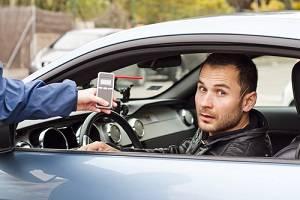 With periods of “No Refusal” for Blood Alcohol Content (BAC) testing being expanded across Texas, it is useful to know your rights when it comes to breath tests, blood tests, urine tests, and other sobriety tests. In particular, you must consider “implied consent” and how it can affect you if pulled over for driving while intoxicated (DWI) in Texas.
With periods of “No Refusal” for Blood Alcohol Content (BAC) testing being expanded across Texas, it is useful to know your rights when it comes to breath tests, blood tests, urine tests, and other sobriety tests. In particular, you must consider “implied consent” and how it can affect you if pulled over for driving while intoxicated (DWI) in Texas.
What Is Implied Consent?
While it might seem otherwise, driving throughout the United States is considered a privilege and not a right. This is why when you first get a driver’s license you are required to take tests. In taking and passing those tests and agreeing to the terms of your licensure, you are essentially waiving your rights to be reckless on the road. Most roads are public roads anyway, governed by the rules set forth by your local jurisdiction. To break those rules is to put other people’s safety at risk, which is against the law. By getting that driver’s license, you are giving your “implied consent” to have your blood or your breath tested for alcohol content, which can impair your driving abilities.
San Antonio Is Setting Records, But Not Good Ones
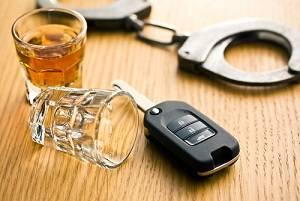 Data over the last few years suggests that San Antonio leads the nation in drunk driving arrests; in fact, from 2009 to 2018, the city of San Antonio had the highest DWI/DUI arrest rate among U.S. cities with 5,181 arrests per 100,000 people, for a total of 77,357 arrests, according to SmartAdvocate. This leads to the important question: What precautions are being taken to prevent driving while intoxicated (DWI) in Texas?
Data over the last few years suggests that San Antonio leads the nation in drunk driving arrests; in fact, from 2009 to 2018, the city of San Antonio had the highest DWI/DUI arrest rate among U.S. cities with 5,181 arrests per 100,000 people, for a total of 77,357 arrests, according to SmartAdvocate. This leads to the important question: What precautions are being taken to prevent driving while intoxicated (DWI) in Texas?
6 Ways the Government Is Helping in the Fight Against DWI
The Centers for Disease Control and Prevention (CDC) has published numerous strategies for how Texas and other states can—and oftentimes do—curb DWIs by raising awareness and better targeting this infraction. Among their suggested methods of curtailing DWIs are:
What Happens to Your Driver’s License After a Texas DWI Conviction?
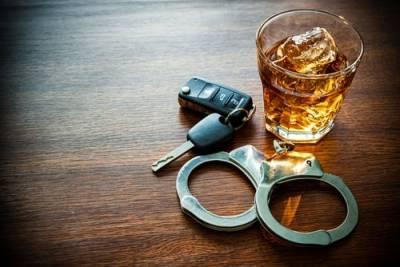 There are many penalties that you can face if you are convicted in Texas for driving while intoxicated. While prison time is a frightening possibility, the loss of your driving privileges is almost a given and may have a lasting effect on your life. Not being allowed to drive could cost you your job and leave you reliant on others for your basic transportation needs. A knowledgeable attorney can help you regain your driving privileges and guide you through the license reinstatement process once you are eligible.
There are many penalties that you can face if you are convicted in Texas for driving while intoxicated. While prison time is a frightening possibility, the loss of your driving privileges is almost a given and may have a lasting effect on your life. Not being allowed to drive could cost you your job and leave you reliant on others for your basic transportation needs. A knowledgeable attorney can help you regain your driving privileges and guide you through the license reinstatement process once you are eligible.
How Long Might You Lose Your License?
The driver’s license suspension that you receive after a DWI conviction is a criminal penalty that is separate from the administrative license suspension that many people receive after being arrested on suspicion of DWI. In Texas:
- A first-time DWI conviction includes a driver’s license suspension of 90 days to one year.
- A second or third DWI conviction includes a driver’s license suspension of 180 days to two years.
Can You Appeal Your Texas DWI Conviction?
 When a person is charged with driving while intoxicated, there is a chance that they will be dissatisfied with the outcome of their court case. They may believe that they were unjustly convicted for the charge or unfairly punished after the conviction. Luckily, anyone who has been convicted of a crime in Texas has the right to file an appeal with a higher court. An appellate court has the authority to overturn a conviction or send the case back to the lower court for a new trial with new instructions.
When a person is charged with driving while intoxicated, there is a chance that they will be dissatisfied with the outcome of their court case. They may believe that they were unjustly convicted for the charge or unfairly punished after the conviction. Luckily, anyone who has been convicted of a crime in Texas has the right to file an appeal with a higher court. An appellate court has the authority to overturn a conviction or send the case back to the lower court for a new trial with new instructions.
When Should You Appeal?
Though you always have the option of appealing your conviction, you will need a strong argument if you hope to be successful in your appeal. When an appellate court considers your case, it is not retrying your case from the beginning. Your appeal must explain how the lower court misapplied the law in a way that may have affected the outcome of your case.
Common reasons for appealing a DWI conviction include:





